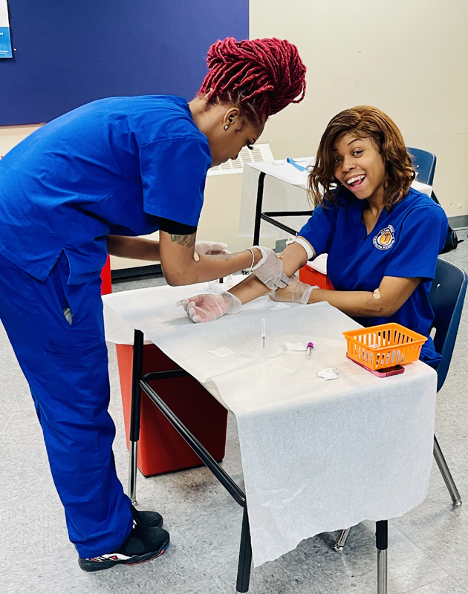
When communicating with patients as a Medical Assistant, it is important to establish a rapport and create a comfortable environment. Here are some tips on how to effectively talk to patients:
- Introduce Yourself: Begin by introducing yourself and explaining your role as an MA. This helps patients understand who you are and why you are involved in their care.
- Use Clear And Simple Language: Avoid using medical jargon or complex terminology that patients may not understand. Instead, use plain language to explain medical concepts, procedures, or instructions.
- Active Listening: Pay attention to what the patient is saying and actively listen to their concerns or questions. Maintain eye contact, nod, and provide verbal cues to show that you are engaged in the conversation.
- Empathy And Compassion: Show empathy and compassion towards patients by acknowledging their feelings and concerns. Be understanding and supportive and validate their experiences.
- Be Patient: Some patients may be anxious, confused, or have difficulty expressing themselves. Be patient and give them time to articulate their thoughts or ask questions. Avoid interrupting or rushing them.
- Non-Verbal Communication: Pay attention to your body language, facial expressions, and tone of voice. Maintain a friendly and approachable demeanor and avoid appearing rushed or disinterested.
- Ask Open-Ended Questions: Encourage patients to share more information by asking open-ended questions. This allows them to express themselves freely and helps you gather more relevant information.
- Provide Clear Instructions: When giving instructions or explaining procedures, break down complex information into simple steps. Use visual aids or written materials if available to enhance understanding.
- Summarize And Clarify: After discussing a topic or providing instructions, summarize the key points and ask the patient if they have any questions or if they understood everything. This helps ensure that both parties are on the same page.
- Respect Privacy And Confidentiality: Always maintain patient privacy and confidentiality. Speak softly and discreetly and avoid discussing sensitive information in public areas.
Remember, effective communication is crucial in building trust and establishing a positive patient-provider relationship. By employing these strategies, you can enhance patient satisfaction and contribute to better healthcare outcomes.
If you have a passion for the medical field and want to learn more, the Allen School of Health Sciences is here to answer all your questions. Ready for a career in the medical field? We cannot wait for you to become part of the Allen School family. Visit www.allenschool.edu .
